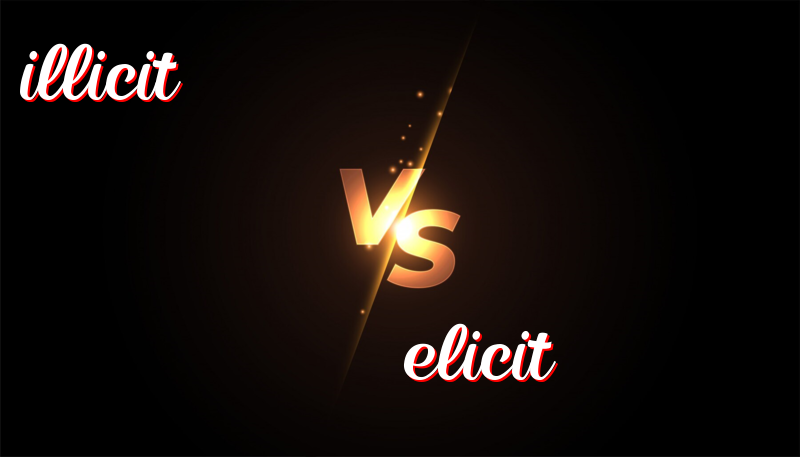英語單詞illicit 與 elicit的區別
January 04, 2025
解釋英文字:Illicit 與 Elicit 的不同
在英語中,illicit 和 elicit 這兩個字在拼寫上很相似,但它們的意思和用法卻截然不同。了解這兩個字的區別對於準確使用英語非常重要。
詞源及歷史
Illicit 這個詞源自拉丁語的 illicitus,意指“不合法”或“被禁止的”。通常用來描述違法的或不道德的行為。
Elicit 則源自拉丁語的 elicere,意指“引出”或“誘出來的”。這個字主要用來描述從某人或某物中引出某事物的動作。
如何使用這些詞
無論是日常交流還是書面寫作中,正確使用這些詞都至關重要。
Illicit 的用法:
- The police arrested him for illicit activities.
警方因其非法活動而逮捕了他。 - She was involved in an illicit affair.
她捲入了一段不正當的戀情。 - Illicit drug use is a serious problem in many cities.
非法藥物使用在許多城市是一個嚴重問題。 - The company was fined for its illicit trading practices.
該公司因非法交易行為而被罰款。 - Illicit gambling is not allowed in this state.
在這個州,非法賭博是不被允許的。
Elicit 的用法:
- The teacher was able to elicit a response from the shy student.
老師能夠從害羞的學生那裡引出回答。 - His jokes are always designed to elicit laughter.
他的笑話總是設計得能引起笑聲。 - The survey was conducted to elicit opinions from the public.
這項調查是為了引出公眾的意見而進行的。 - The presentation failed to elicit much interest from the audience.
這次演講未能從觀眾中引起太多興趣。 - They tried to elicit information from the suspect.
他們試圖從嫌疑犯那裡引出信息。
記住區別的小技巧
記住這兩者的區別可以使用一個小技巧:Illicit 以“I”開頭,想像“I”代表“不”(Illegal);而 elicit 以“E”開頭,想像“E”代表“引出”(Evoking)。這樣能有助於快速記憶這兩個單詞的意義。
總結
總之,illicit 描述的是非法或不道德的事情,而 elicit 則是關於引出或獲取某些資訊、反應或情感。掌握這兩個詞的用法和區別對於提高英語的書面和口語能力至關重要。

Leave a Reply
You must be logged in to post a comment.